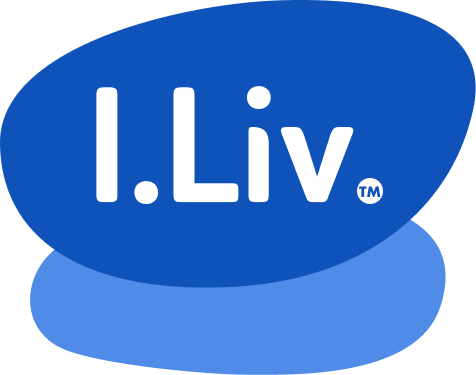Despite increasing educational achievements and workforce participation, women remain significantly underrepresented in senior management roles within many organizations. This gap highlights the necessity for a systematic approach to nurturing women’s careers from entry level to executive positions. To address this effectively, organizations must adopt a structured three-pronged strategy focused on recruitment, retention, and advancement. Each phase requires distinct methods and interventions to create a supportive environment that fosters career progression for women. This approach not only promotes gender diversity but also enhances organizational success by leveraging the full potential of a diverse workforce. By prioritizing these strategic phases, companies can transform their work culture, promoting inclusivity and equity throughout their organizational structure.
Strategic Recruitment
To ensure a workforce rich in diversity and poised for innovation, it is essential to attract a broad spectrum of female candidates. This begins with crafting job descriptions that not only appeal broadly but explicitly invite women by highlighting attributes and qualifications that encourage female applicants. Moreover, assembling diverse hiring panels can significantly enhance the recruitment process by introducing varied perspectives that resonate with a wider candidate pool.
Further amplifying these efforts, organizations should extend their reach by actively engaging with networks, groups, and associations dedicated to professional women. This targeted outreach helps tap into a reservoir of qualified candidates who might otherwise remain untapped due to traditional recruitment practices.
Beyond initial contact, the recruitment process must be rigorously structured to promote fairness and objectivity. Implementing skill-based assessments allows candidates to be evaluated on their actual capabilities relevant to job requirements, rather than on subjective criteria. Additionally, structured interviews ensure that all candidates are asked the same questions in the same order, which helps minimize personal biases and leads to more equitable hiring decisions.
Equally important is the training of recruiters to recognize and mitigate unconscious bias. This type of training equips recruitment professionals with the tools necessary to conduct fair assessments of all candidates, fostering a truly inclusive hiring environment that benefits the organization and its ambitions for a diverse and dynamic team.
Effective Retention with I.Liv Programs
I.Liv programs play a crucial role in nurturing the environment needed to retain female talent effectively. These programs are strategically crafted to support women’s career growth and help bridge the gap between current capabilities and future aspirations, cultivating a sense of belonging and commitment among participants.
Work-life balance initiatives are central to retention strategies. Flexible work arrangements, such as telecommuting options and adaptable work schedules, allow women to excel in their roles without sacrificing their personal lives. This balance is critical in not only attracting but retaining high-caliber talent. A supportive company culture that genuinely respects and accommodates individual needs further enhances this balance, making the workplace a conducive environment for long-term careers.
Moreover, ongoing professional development is pivotal. Leadership programs designed to prepare women for higher responsibilities keep them engaged and motivated. By consistently offering growth opportunities and clear paths to advancement, organizations can ensure that their high-potential female employees are not only prepared for future challenges but are also deeply invested in the trajectory of their careers within the company. This investment significantly increases retention rates and promotes a more dynamic and innovative leadership pool.
Ensuring Advancement
To effectively nurture the advancement of women within organizations, it is crucial to establish transparent career progression channels. These pathways must be communicated openly to all employees, ensuring everyone is aware of the opportunities available and the criteria needed to advance. Clarity in progression pathways demystifies the process of advancement, making it accessible and understood by all.
Leadership training and development play a pivotal role in preparing women for senior roles. Such programs should not only focus on enhancing technical and managerial skills but also on providing critical feedback, presenting leadership challenges, and facilitating visibility projects. These elements are essential for preparing women to handle high-stakes roles effectively and confidently. Leadership training must be a proactive effort to equip women with the necessary tools and experiences to excel in upper management.
Furthermore, performance assessment processes need to be meticulously designed to recognize both tangible outcomes and potential. It’s important to cultivate assessment practices that are fair and objective, aiming to eliminate biases that might otherwise hinder the progression of talented female employees. By acknowledging both achievements and potential, companies can create a more equitable environment that promotes true talent and capability, paving the way for more women to rise to senior positions. This approach not only benefits the individuals but also enhances the organizational strength by fostering a diverse leadership team.

Integration of Strategies
Integrating the strategies of recruitment, retention, and advancement into a cohesive approach forms a robust support system that addresses the unique challenges and stages of women’s careers within an organization. This holistic strategy ensures that from the moment women enter the company, through their development and up to their potential leadership roles, they receive consistent support and guidance tailored to their needs.
It’s vital for organizations to not only set these strategies in motion but also to commit to regular reviews and adapt these plans based on ongoing feedback and measurable outcomes. This adaptive approach allows companies to respond effectively to the evolving needs of their workforce and the dynamic nature of the business environment. By continuously refining these strategies, organizations can maintain alignment with their diversity goals and the personal and professional growth of their female employees.
Such periodic evaluations and adjustments ensure that the support system remains relevant and effective, fostering an environment where women can thrive and ascend within their professional spheres. This commitment to adaptability not only enhances employee satisfaction and retention but also strengthens the organization’s reputation as a progressive and supportive employer.
A three-pronged strategy of recruitment, retention, and advancement provides a comprehensive framework that not only supports but also propels women throughout their careers within any organization. By focusing on these strategic areas, companies can ensure that they are not only filling positions with diverse candidates but are also nurturing and advancing their talent to foster a truly inclusive workplace.
We encourage organizations to embrace these targeted strategies with commitment and enthusiasm. Integrating I.Liv’s programs into your retention efforts can significantly amplify these strategies, enhancing your organization’s diversity and inclusion goals. Our programs offer the necessary tools and support that reinforce your company’s initiatives, helping to retain valuable female talent and prepare them for leadership roles, thus ensuring a vibrant and dynamic future for your workforce.
By committing to these principles, your organization can look forward to a richer, more diverse corporate culture that is not only aligned with modern values but also geared towards substantial growth and innovation.

